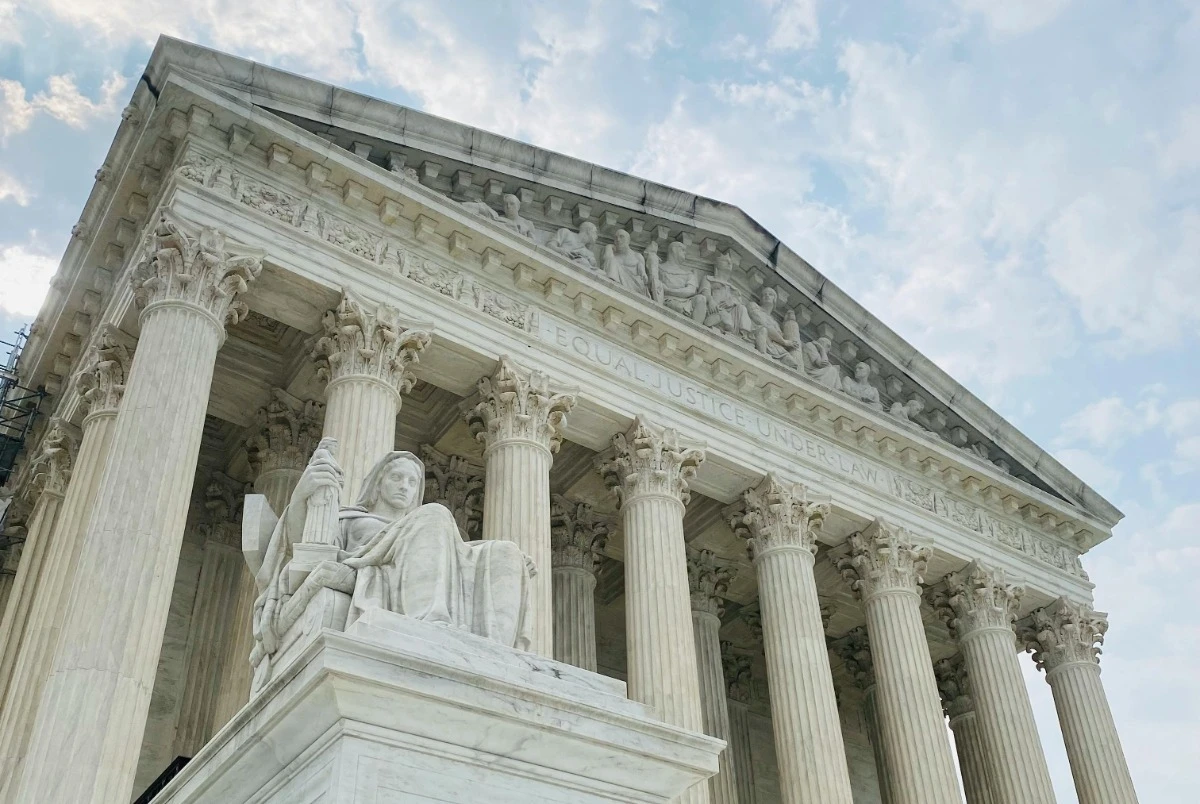Late on Monday (13 May) the US Department of Justice (DoJ) filed its response in the Supreme Court in the Florida sports betting case. The filing is the final piece before the court determines whether or not it will hear the case that could change the future of sports betting in Florida.
West Flagler and Associates (WFA) filed a writ of certiorari with the Supreme Court in April. In its response to WFA, the DoJ essentially argues that the Florida pari-mutuel’s case has no place before the court.
DoJ attorneys, on behalf of the Department of the Interior (DoI) wrote that the key issue, the validity of the Seminole-Florida 2021 compact, is not a federal issue. They also argued that the compact itself is well within bounds and that the DoI decision to allow it to be “deemed approved” does not violate any laws.
At issue is whether or not the DoI should have approved a compact that gives the Seminoles exclusivity to online sports betting. DoJ lawyers said the Florida sports betting case comes down to three issues:
- 1. Does the compact violate the Indian Gaming Regulatory Act (IGRA)?
- 2. Does the compact violate the Unlawful Internet Gaming Enforcement Act (UIGEA)?
- 3. Does the DOI’s approval violate the equal-protection measures outlined in the Fifth Amendment?
DoJ: The DoI had no grounds to disapprove compact
The DoJ says no to all three and hangs its argument on the idea that “IGRA leaves the substance of a tribal-state compact… to be determined by the tribe and the state”. Further, that the DoI can only disapprove a compact “if it violates IGRA, federal law, or trust obligations to tribes”.
Although the case is in federal court, all parties seem to agree that the case is a states’ rights issue. Florida voters in 2018 passed Amendment 3, which requires any expansion of gaming go to the voters.
But in 2021, Governor Ron DeSantis entered into the compact and then state legislators approved it in a special session. The voters had no say. But federal courts cannot rule on whether or not state law has been violated.
When WFA filed in federal court, it sued DoI secretary Deb Haaland saying she should not have approved the compact. Although the Florida sports betting case involves the Seminole tribe and the state of Florida, neither are party to it. The compact also allows the Seminoles to offer dice and ball games at its retail casinos.
Breaking news. Florida #sportsbetting alert! Today, the D.C. Circuit ruled in favor of the Seminole Tribe completely reversing the District Court. This is a huge victory for Hard Rock and the first to favorably resolve a post-PASPA challenge under IGRA. More analysis to come!
— Jeff Ifrah (@jifrah) June 30, 2023
So far, a US District Court found in favour of WFA, saying the DoI reached beyond its limits by approving. But a federal appeals court disagreed. Justice Brett Kavanaugh, however, strongly suggested that the case does not belong in federal court, when SCOTUS denied West Flagler a stay. WFA did file in Florida’s Supreme Court, but last autumn that court declined to hear the case. WFA skipped the step of filing in a lower Florida court. It could still go that route.
DoI didn’t sign off on compact
When Florida lawmakers entered into and ultimately approved the compact, they handed the Seminoles a monopoly on digital wagering. The Seminoles launched their Hard Rock Bet platform on 7 November 2023. The launch was unexpected and came one month before it began rolling out in-person sports betting, craps, roulette and other new games.
The compact deems any wager placed in Florida to be on Indian land, if it flows through a tribal server. Lawmakers also amended state law to allow online wagers off Indian land, if they flow through a tribal server. Taken together, those decisions mean that the tribe is acting within current state law by offering digital sports betting.
"It's a big day for us," @HardRock CEO Jim Allen tells @ContessaBrewer as Florida moves to expand gaming and sports betting options at its casinos. "To now be offering the game of roulette is something that's a real addition for us, and we're really excited about it." pic.twitter.com/gbHGYgogMj
— Last Call (@LastCallCNBC) December 7, 2023
That said, lawmakers circumvented Amendment 3, according to WFA. Should WFA go back to state court, that amendment will surely play a key role.
When it comes to the federal questions, the DoJ wrote that the DoI had to allow the compact to become “deemed approved”. Haaland did not sign off on the compact.
Rather, she allowed 45 days to pass after it was submitted, at which point it became “deemed approved”. In that scenario, the DoJ wrote, the compact is in force, but “only to the extent that the compact is consistent with the provisions of IGRA”.
But IGRA only governs gaming on tribal land. The DoJ argues that the compact is “consistent” with IGRA. The “court likewise correctly determined that IGRA leaves fully intact the state’s ‘capacious’ regulatory power outside Indian territory”, wrote DoJ lawyers.
Did DoJ find loophole in Florida sports betting case?
Under IGRA, a gaming compact may also address issues “related” to other topics and “any other subjects that are directly related to the operation of gaming activities”. Digital sports betting could arguably be considered “related to the operation of gaming activities”.
And if a state is allowed “capacious” – which can mean extended or broad – power outside Indian Country, then the argument could be considered valid.
The DoJ cited the Michigan v Bay Mills Indian Community decision, writing: “If a state can authorise a tribe to conduct gaming operations on non-Indian lands under state law, the state can also authorise the tribe’s gaming activities that are related to gaming activities on Indian lands.”
With regard to UIGEA, the federal government wrote that the appeals court didn’t think there was a violation. Further, a UIGEA violation was never the issue as “the issue was whether or not the DoI should have approved” the compact. And on the subject of equal protection, the DoJ argues that WFA’s argument was based on “two flawed premises” making it irrelevant.
Another DoJ argument is the contention that the Supreme Court “sits as a court of review, not first view”. Because WFA wrote that its concerns were not previously addressed, justices need not consider them. The court’s “traditional rule .. precludes a grant of certiorari… when the ‘question presented was no pressed or passed upon below’”.
There is no timeline on which the Supreme Court must determine whether or not it will take the Florida sports betting case. Traditionally, the Supreme Court hears 100-150 cases per year of the more than 7,000 filed.




